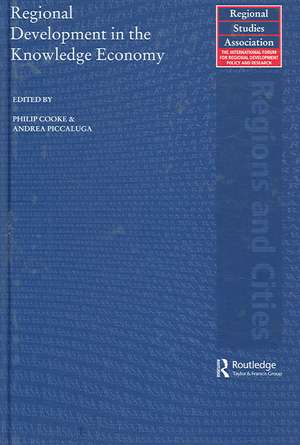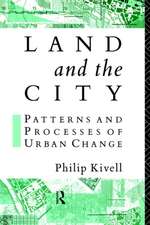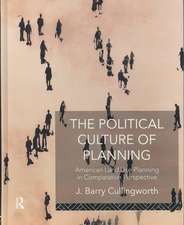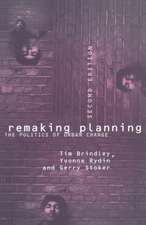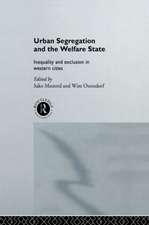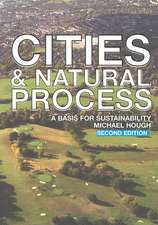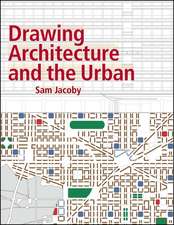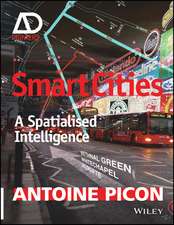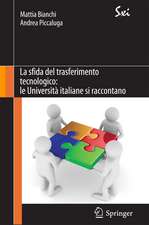Regional Development in the Knowledge Economy: Regions and Cities
Editat de Philip Cooke, Andrea Piccalugaen Limba Engleză Hardback – 31 iul 2006
Illustrated by data and 'stylized' accounts, the international contributors chart the evolution of knowledge economies, questioning the way in which they work and criticize accepted theories and inform how places can cope in the knowledge economy.
Based in concept on Cooke's Knowledge Economies (Routledge, 2002), Regional Development in the Knowledge Economy is a well-grounded work exploring this increasingly important theme with relevance to innovation systems and related economic development literature.
| Toate formatele și edițiile | Preț | Express |
|---|---|---|
| Paperback (1) | 414.70 lei 6-8 săpt. | |
| Taylor & Francis – 21 dec 2009 | 414.70 lei 6-8 săpt. | |
| Hardback (1) | 1059.45 lei 6-8 săpt. | |
| Taylor & Francis – 31 iul 2006 | 1059.45 lei 6-8 săpt. |
Din seria Regions and Cities
- 8%
 Preț: 389.90 lei
Preț: 389.90 lei -
 Preț: 310.65 lei
Preț: 310.65 lei -
 Preț: 313.19 lei
Preț: 313.19 lei -
 Preț: 327.83 lei
Preț: 327.83 lei -
 Preț: 326.34 lei
Preț: 326.34 lei -
 Preț: 352.81 lei
Preț: 352.81 lei - 18%
 Preț: 1064.04 lei
Preț: 1064.04 lei - 18%
 Preț: 1293.66 lei
Preț: 1293.66 lei - 18%
 Preț: 1059.14 lei
Preț: 1059.14 lei -
 Preț: 486.42 lei
Preț: 486.42 lei - 15%
 Preț: 701.32 lei
Preț: 701.32 lei - 18%
 Preț: 1119.45 lei
Preț: 1119.45 lei -
 Preț: 421.61 lei
Preț: 421.61 lei - 26%
 Preț: 765.59 lei
Preț: 765.59 lei -
 Preț: 423.57 lei
Preț: 423.57 lei -
 Preț: 285.09 lei
Preț: 285.09 lei - 18%
 Preț: 1173.97 lei
Preț: 1173.97 lei - 26%
 Preț: 763.61 lei
Preț: 763.61 lei - 18%
 Preț: 1166.05 lei
Preț: 1166.05 lei - 15%
 Preț: 461.87 lei
Preț: 461.87 lei - 18%
 Preț: 1335.56 lei
Preț: 1335.56 lei - 18%
 Preț: 1001.90 lei
Preț: 1001.90 lei - 18%
 Preț: 1059.48 lei
Preț: 1059.48 lei - 31%
 Preț: 191.33 lei
Preț: 191.33 lei - 18%
 Preț: 952.31 lei
Preț: 952.31 lei - 15%
 Preț: 428.79 lei
Preț: 428.79 lei - 15%
 Preț: 713.20 lei
Preț: 713.20 lei - 15%
 Preț: 500.55 lei
Preț: 500.55 lei - 18%
 Preț: 1061.54 lei
Preț: 1061.54 lei - 18%
 Preț: 1059.18 lei
Preț: 1059.18 lei - 15%
 Preț: 508.75 lei
Preț: 508.75 lei - 18%
 Preț: 1061.06 lei
Preț: 1061.06 lei - 18%
 Preț: 1168.85 lei
Preț: 1168.85 lei - 18%
 Preț: 1065.06 lei
Preț: 1065.06 lei - 18%
 Preț: 1065.06 lei
Preț: 1065.06 lei - 18%
 Preț: 1064.70 lei
Preț: 1064.70 lei - 18%
 Preț: 709.70 lei
Preț: 709.70 lei -
 Preț: 488.71 lei
Preț: 488.71 lei - 18%
 Preț: 1056.14 lei
Preț: 1056.14 lei - 18%
 Preț: 1168.09 lei
Preț: 1168.09 lei -
 Preț: 239.02 lei
Preț: 239.02 lei - 18%
 Preț: 1058.38 lei
Preț: 1058.38 lei - 18%
 Preț: 1061.57 lei
Preț: 1061.57 lei
Preț: 1059.45 lei
Preț vechi: 1292.01 lei
-18% Nou
Puncte Express: 1589
Preț estimativ în valută:
202.74€ • 213.18$ • 167.51£
202.74€ • 213.18$ • 167.51£
Carte tipărită la comandă
Livrare economică 17 aprilie-01 mai
Preluare comenzi: 021 569.72.76
Specificații
ISBN-13: 9780415365536
ISBN-10: 0415365538
Pagini: 320
Ilustrații: 41 tables and 13 line drawings
Dimensiuni: 156 x 234 x 22 mm
Greutate: 0.59 kg
Ediția:New.
Editura: Taylor & Francis
Colecția Routledge
Seria Regions and Cities
Locul publicării:Oxford, United Kingdom
ISBN-10: 0415365538
Pagini: 320
Ilustrații: 41 tables and 13 line drawings
Dimensiuni: 156 x 234 x 22 mm
Greutate: 0.59 kg
Ediția:New.
Editura: Taylor & Francis
Colecția Routledge
Seria Regions and Cities
Locul publicării:Oxford, United Kingdom
Public țintă
Postgraduate and ProfessionalCuprins
1. Introduction: Regional Asymmetries, Knowledge Categories and Innovation Intermediation 2. Localised Knowledge Spillovers: The Key to Innovativeness in Industrial Clusters? 3. Knowledge-Intensive Industries and Regional Development: The Case of the Software Industry in Norway Arne Isaksen (STEP Group, Oslo) 4. The Impact of Geography on the Innovative Productivity of Software Firm in the Netherlands 5. Constructing Regional Innovation Systems through a Triple Helix: Lessons and Inspiration from the Northern Hemisphere 6. Sourcing of Market Knowledge in Biotechnology 7. Knowledge Access at Distance: Strategies and Practices of New Biotechnology Firms in Emerging Locations 8. Linking Less-Favoured Finnish Regions to the Knowledge Economy Through University Filial Centres 9. Economic Growth in Emerging Knowledge Intensive Areas: The High-Tech Cluster in Pisa 10. An Emerging ICT Cluster in a Marginal Region: The Sardinian Experience 11. Cooperation Networks and Regional Development: Case of Multisectoral Partnership for Innovation 12. The New Knowledge Regions: From Simple to Complex Innovation Theory 13. Conclusions. Variety and Miracles for Successful Regional Innovation Policies: From 'Copy and Paste' to 'Copy and Paste Special'
Notă biografică
Philip Cooke is University Research Professor in Regional Development and founding Director (1993) of the Centre for Advanced Studies, University of Wales, Cardiff. His research interests lie in studies of Economics of Biotechnology, Regional Innovation Systems, Knowledge Economies, and Policy Actions for Business Clusters and Networks.
Andrea Piccaluga is Professor of Business Administration and Innovation Management at the Sant'Anna School for Advanced Studies, Pisa, Italy. He is also scientific director of the SIAF Management School in Volterra (Pisa). His research interests include R&D management in private and public organizations and knowledge-based regional development.
Andrea Piccaluga is Professor of Business Administration and Innovation Management at the Sant'Anna School for Advanced Studies, Pisa, Italy. He is also scientific director of the SIAF Management School in Volterra (Pisa). His research interests include R&D management in private and public organizations and knowledge-based regional development.
Recenzii
'The book is written in "academic" but as editor Philip Cooke says, it raises good questions for policy-makers.' – Public
"[This] book deserves to be well consulted by academics and policy-makers." - Regional Studies
"[This] book deserves to be well consulted by academics and policy-makers." - Regional Studies
Descriere
Illustrated by data and 'stylized' accounts, international contributors chart the evolution of knowledge economies, questioning the way in which they work, criticizing accepted theories and informing how places can cope in the knowledge economy.
